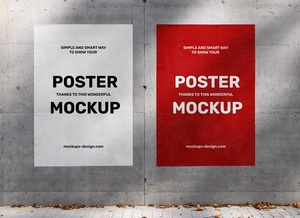Brick Wall Mounted City Billboard Mockup

During times of economic instability, small and medium-sized businesses often face significant challenges in maintaining their operations and profitability. It's essential for these businesses to adopt cost-effective strategies and make prudent financial decisions to weather difficult economic conditions. Here are some additional tips and considerations for small and medium-sized businesses facing economic challenges:
-
Cost Management: Continuously monitor and analyze your company's expenses. Identify areas where cost savings can be achieved without compromising the quality of your products or services. Negotiate with suppliers for better terms and explore options for bulk purchasing.
-
Adaptability: Be flexible and adaptable in responding to changing market conditions. Consider diversifying your product or service offerings to meet evolving customer needs. Agility can be a significant advantage during economic downturns.
-
Customer Retention: Focus on retaining existing customers. Building strong customer relationships can lead to repeat business and referrals. Consider loyalty programs or special promotions for loyal customers.
-
Online Presence: Strengthen your online presence and e-commerce capabilities. Many consumers are shifting to online shopping, and having an effective digital strategy can help you reach a broader audience.
-
Marketing Efficiency: Optimize your marketing efforts by targeting your advertising to reach your ideal customers. Digital marketing allows for precise audience targeting, reducing advertising waste.
-
Cash Flow Management: Monitor cash flow carefully. Delay non-essential expenses and consider extending payment terms with suppliers. Explore options for short-term financing if needed to cover operational costs.
-
Employee Engagement: Engage and motivate your employees. They play a crucial role in delivering quality products and services. Consider flexible work arrangements and opportunities for professional development.
-
Financial Planning: Develop a robust financial plan that includes budgeting, forecasting, and scenario analysis. This can help you make informed decisions and navigate uncertainties.
-
Customer Feedback: Gather feedback from customers to understand their changing preferences and pain points. Use this information to make product or service improvements.
-
Government Support: Explore government assistance programs or grants that may be available to small and medium-sized businesses during economic crises.
-
Seek Professional Advice: Consider consulting with financial advisors or business experts who can provide guidance tailored to your specific industry and circumstances.
-
Long-Term Strategy: While focusing on short-term survival is essential, also consider your long-term business strategy. Strategically positioning your business for future growth can help you emerge stronger when economic conditions improve.
Mockup templates, such as the billboard mockup you've shared, can be valuable for visualizing advertising campaigns and marketing strategies. They allow businesses to preview how their branding and messaging will appear in real-world settings.
Remember that navigating economic challenges often requires resilience, creativity, and a willingness to adapt. By carefully managing your resources and staying attuned to market dynamics, your business can better withstand economic downturns.






























